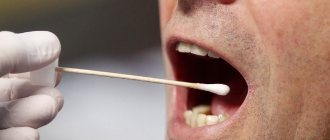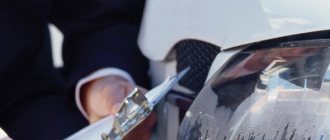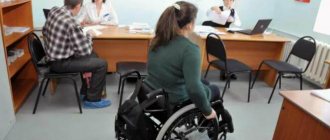Automotive technical examination is a study of the causes and circumstances of road traffic accidents (RTA), a study of the technical condition of vehicles, individual components, assemblies, parts by a specialist expert with special knowledge and experience in this field.
Automotive commodity examination is a study of vehicles in order to establish the market value, estimate the residual value, the amount of loss of marketable value of vehicles, as well as the amount of damage caused to them as a result of an accident.
Biological examination is the study of various objects of plant and animal origin (blood, hair, excretions of humans and animals), their species (origin from an animal or a person) and group affiliation, and identification of a person using DNA analysis.
Accounting examination is a study of accounting records and reporting in order to identify the presence or absence of distortions or any errors, determine the cause of formation and other factors influencing the occurrence of errors (distortions).
Land management examination is a study of a land plot by a specialist (expert) who has special knowledge in the field of land management, cadastral activities, and the formation of land plots. The need for this independent examination arises when challenging the boundaries of a site, land division, or the legality of buildings located on the site.
Art criticism is an expert study of objects (products, objects, texts) in order to determine the historical, artistic or cultural value, time and place of their creation, authenticity and affiliation with a specific author.
Computer technical expertise is an engineering and technical study of the state of hardware (for example, system units of personal computers) and components, information media (hard drives, floppy disks, etc.), software, search for hidden information, reconstruction of information, research of all kinds programs and databases.
Linguistic examination is the study of text, both oral and written, mainly for the purpose of determining the truth (falsity) of words and phrases as offensive, extremist, defaming honor and dignity.
Fire-technical examination is a study of the causes of the fire, the source of the fire, the conditions of occurrence, the nature of the fire and its consequences, including the establishment of material damage caused by the fire.
Portrait examination is a study conducted with the aim of identifying a person’s personality based on external features recorded on various objective images.
Handwriting examination is a study of handwriting in order to identify the artist of a signature, manuscript, short note, etc.
Psychological examination is the study of non-pathological phenomena of the human psyche in order to determine the influence of the characteristics of his mental state on behavior at the time being studied, including determining the state of affect.
Construction and technical expertise is the study of construction projects, as well as territories functionally related to these objects. This independent examination is necessary when controversial issues arise between the customer and the contractor in assessing the quality and actual volumes of construction or repairs, to assess damage in the event of a fire, flooding of a property, etc., when inspecting buildings and structures, including utility networks and communications in order to determine their technical condition.
Technical examination of documents - examination of details and materials of documents in order to establish the method of production (falsification) of a given document (passport, agreement, money, etc.), the use of printing devices, examination of document materials, restoration of the contents of damaged documents.
Commodity examination is the study of consumer and industrial goods, including for the purpose of evaluating them. It is most often carried out when resolving disputes between the buyer and seller regarding issues of inadequate quality of goods.
Trace examination is the study of various traces left at the scene of an accident (road accident) or crime. Traceological examination can establish the mechanism of formation of traces and determine the object that left the traces under study. To determine the involvement of a specific vehicle (including its damage) in an accident, a transport and trace examination is carried out.
Phonoscopic and videoscopic examinations are the study of phonograms and video recordings in order to establish the identity of the speaker from recorded oral speech, from video images, to identify signs of the use of editing, and so on.
Phototechnical examination is the study of photographic materials, as well as photographs and the technical means that were used to make them. This examination makes it possible to identify objects depicted in photographic images and determine whether retouching or editing was applied to photographic images.
You can conduct a professional independent examination in St. Petersburg LES LENEXP at the address: St. Petersburg, st. Komsomol, 41, office 219. Contact us if you need results! Our examinations and assessments are accepted by all courts of the Russian Federation (including the Arbitration Court of St. Petersburg and the Leningrad Region).
Concept of expertise
The main purpose of the examination is to obtain additional evidence that cannot otherwise be obtained. The decision on its necessity is made exclusively by the court, issuing an appropriate ruling. The initiative in this case can come from both the judge and the persons participating in the case.
The experts are asked clearly formulated questions. The answers to them should help establish the circumstances essential to the case and confirm or refute the arguments of each party.
Feeding method
The application is submitted in two ways, the choice is made by the bearer independently:
- while a court case is being considered, that is, during a court hearing;
- to the office of the relevant court (for example, if the case is being considered by a magistrate, then it must be filed at the station of this magistrate).
Inaccuracies that are allowed in the application
The practice of judges considering applications for examination shows that applicants, contrary to the established procedure, and without adhering to the procedure, formalize their requirements.
- The names of the organizations where the research will be conducted are not indicated correctly.
- The demands are addressed directly to the experts instead of the presiding officer in the case, who makes a decision on this issue.
- They mistakenly note the content of claims and the grounds for drawing conclusions by specialists.
- They do not provide legal reasons for justifying the need to conduct an examination.
- There are no adequate justifications for the need for conclusions.
A judge in a civil case may refuse to satisfy an application if the mistakes made do not provide the specialist with the opportunity to conduct research and draw conclusions. Or there are significant contradictions and inaccuracies in the motivation behind the petitions.
A proper forensic examination is carried out on the basis of a petition, which is drawn up according to typical samples.
Errors when drawing up a document
Please pay attention to the errors that are most often encountered when drawing up an application:
- in the name of the recipient organization the examination bureau is indicated instead of the court;
- the details of the case under consideration or the statement of claim are not indicated;
- do not indicate from which party in the case the petition was received (defendant or plaintiff);
- there is no argumentation;
- There are no references to legal acts.
It is worth paying attention to the absence of logical errors, for example:
- there is no clear argumentation for the need for an examination;
- illiterate choice of specialist or organization that will conduct the examination;
- incorrect wording of questions.
At least one of these errors may lead to the refusal to accept the petition or leave it in force - the decision will be made by the court.
When and where to apply
The Code of Civil Procedure does not stipulate how the process of submitting petitions will take place. Therefore, it can be presented at any time during the court hearing, but more often they are filed after the judge asks whether the parties to the case have any petitions or statements.
Important! The main thing is that the petition is submitted before leaving for the deliberation room of the court to make a decision.
An application for an expert opinion is submitted
In the court of first instance:
- During the preliminary hearing;
- During the consideration of the case on the merits in a court hearing (before the stage of consideration and examination of evidence ends).
In the court of appeal, but 2 conditions must be met:
- examination is permissible when considering a specific case;
- the party filing the request for an examination will prove that in the previous consideration the examination was not carried out and this is not his fault. In this situation, it is necessary to prove that the reason for not conducting the examination in the previous instance was valid, for example, the court rejected the petition.
Appointment of examination
An appeal to the court with a request to conduct an examination in a certain area is formalized in the form of a petition. The court must consider it and make an appropriate determination.
The parties to the case and other participants in the process have the right to:
- Present questions that the expert should answer. The court has the right to disagree with the wording, while explaining the reason for the rejection.
- Ask the court to entrust the examination to a specific organization or specialist, as well as reject candidates.
- Familiarize yourself with the court ruling ordering an examination.
- Be present during the examination if circumstances permit.
- Read the text of the expert report.
- Ask the court to conduct an additional examination.
Duration of the examination and its costs
Attention! The timing of the expert study is determined solely by the court in the framework of civil proceedings.
If the deadlines set by the court are not met, the experts conducting the research may be subject to punishment in the form of a fine. Until the expert opinion is received, the time frame for considering the case in court is suspended. And, accordingly, after the court receives the expert opinion within the prescribed period, the legal proceedings are resumed.
Who pays for an independent examination of the product?
Read how to calculate the state fee in court here.
How to submit a request to reduce the fine to the tax service, read the link:
Remember! The cost of the examination is reimbursed by persons participating in the consideration of the civil case. Please note that if you paid for an expert study, and the court made a positive decision in your favor, then you can exercise the right to recover legal costs from the losing party (representative services, cost of examination, state duty, etc.).
You can submit a request for reimbursement of court costs both during the consideration of the court case and after its completion.
Types of examination
Procedural legislation makes it possible to distinguish the following types of examination.
Depending on the stage:
- primary;
- repeated;
- additional.
According to the expert composition:
- sole;
- commission.
The conclusion can be given both in one area and in several (comprehensive examination).
Attention! The applicant needs to understand what kind of conclusion the expert should give. The questions asked to the specialist will be of primary importance. Can be considered as a sample of an accident. Here it is possible to carry out the following types of road transport examination: technical-diagnostic, auto-technical, traceological.
When might it be needed?
Some categories of civil cases require the involvement of persons with a sufficient level of qualifications and special technical equipment. This is why, as a rule, a forensic examination is prescribed. Carrying out such a procedure may be entrusted to a forensic institution or an individual specialist. The final choice of expert is made by the judge, and he must take into account the opinions of the participants in the process.
And yet, what kind of court cases require an invited specialist? Expertise is often prescribed to resolve the following issues:
- To determine the amount of damage;
- For division and valuation of property;
- To establish the authenticity of documents;
- To establish paternity;
- To determine the degree of harm caused to health;
- To determine the cause of damage to construction sites.
Info
In all of the above cases, forensic examination will be one of the main evidence in the current case. Moreover, it can be appointed not only at the initiative of the judicial authority, but also at the request of one of the participants in the process. This can be done at any stage of the proceedings, right up to the decision.







